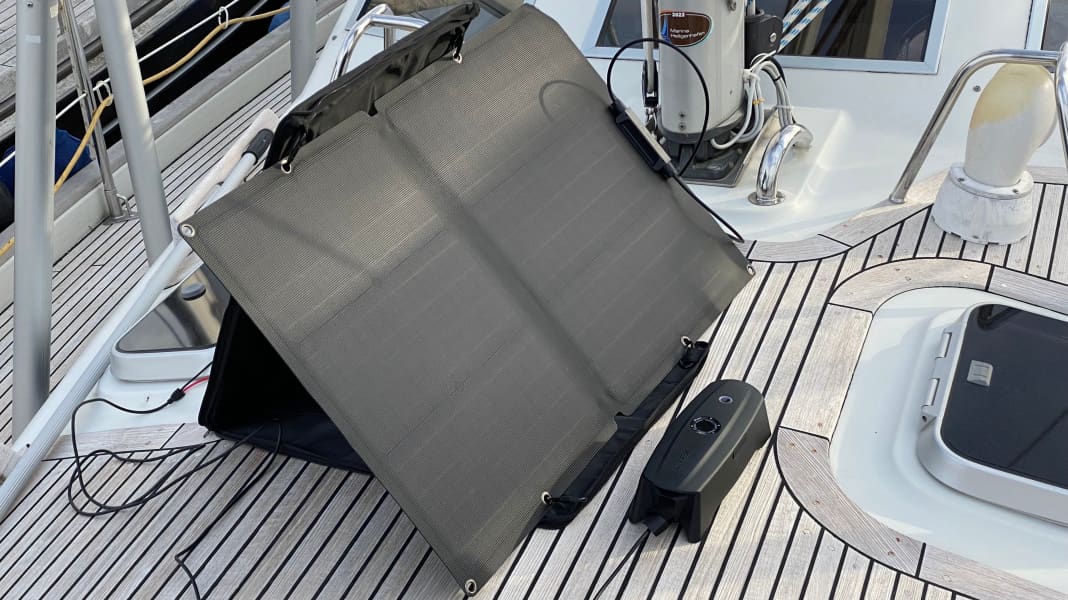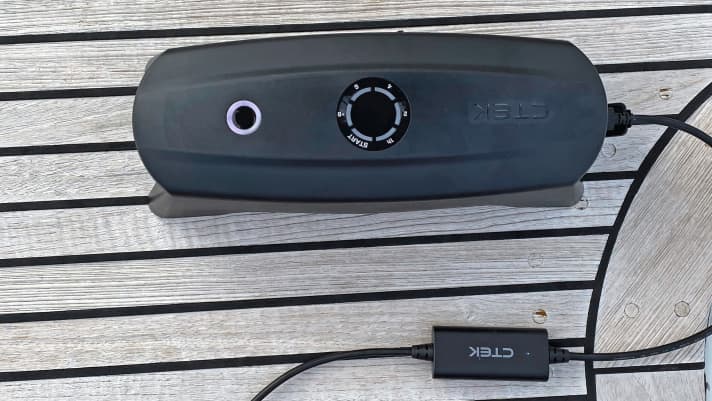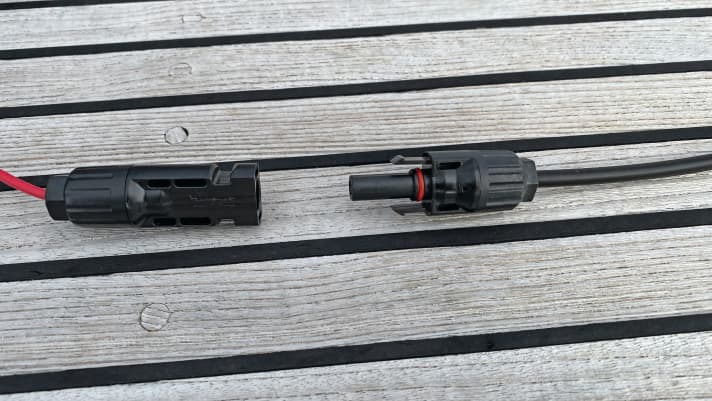On-board electrics: New multifunctional loader - especially for yachts without an on-board power supply
Michael Rinck
· 19.07.2022

The Swedish specialist for charging technology CTek has been a force to be reckoned with in the car, motorbike and motorhome sectors. However, its latest device, the CS Free, is also predestined for yacht owners. This is because it combines four functions and also works independently of shore power.
Connected to the consumer or starter battery using powerful crocodile clips, it can compensate for voltage losses during longer periods of absence. Thanks to a built-in LiFePo battery, it requires neither a connection to the 230-volt mains nor a permanently installed charger - attractive for small cruisers, for example, which do not have a fully integrated on-board power supply. The CS Free can also be used on larger yachts. This means that the boat does not have to be connected to shore power for weeks on end.
The small box, which weighs just 1.4 kilograms, also serves as a charging and starting aid booster. If the built-in diesel engine fails to start because the starter battery is weak, the CS Free provides it with enough fresh energy within 15 minutes to get the starter motor turning again. Six LEDs on the top of the device indicate how long the boost phase will last. Its own charge status is symbolised by four light segments arranged around the power button. Operation is extremely simple. This is probably one of the reasons why the manual is almost completely devoid of text; a good 90 per cent of it consists of illustrations.

The third function corresponds to that of a classic power bank, which can be used to charge a laptop, smartphone or torch. One USB-A and one USB-C output are available for this purpose. The nominal capacity of the built-in battery (5.5 Ah) is sufficient for several end devices.
The CS Free can be charged via a 230-volt power supply unit. Connected to this, it can also permanently monitor and condition all common battery types - from lead/acid batteries to AGM and gel batteries to modern lithium batteries. CTek also offers a specially customised solar panel for charging. It has a peak output of 60 watts and fills the CS Free within four to five hours; even under cloudy skies it still produces enough charging current. The supplied bag helps with the best possible alignment. The panel can also be attached to the boom or railing using eyelets and carabiners. The only drawback is that the output voltage of 21.6 volts is unfortunately not compatible with the on-board power supply.
CTek products fulfil high quality and technical requirements. However, they are quite expensive. The list price for the CS Free is 329 euros and 334 euros for the Solar Panel Charge Kit. However, both are also available online for around 250 euros.

